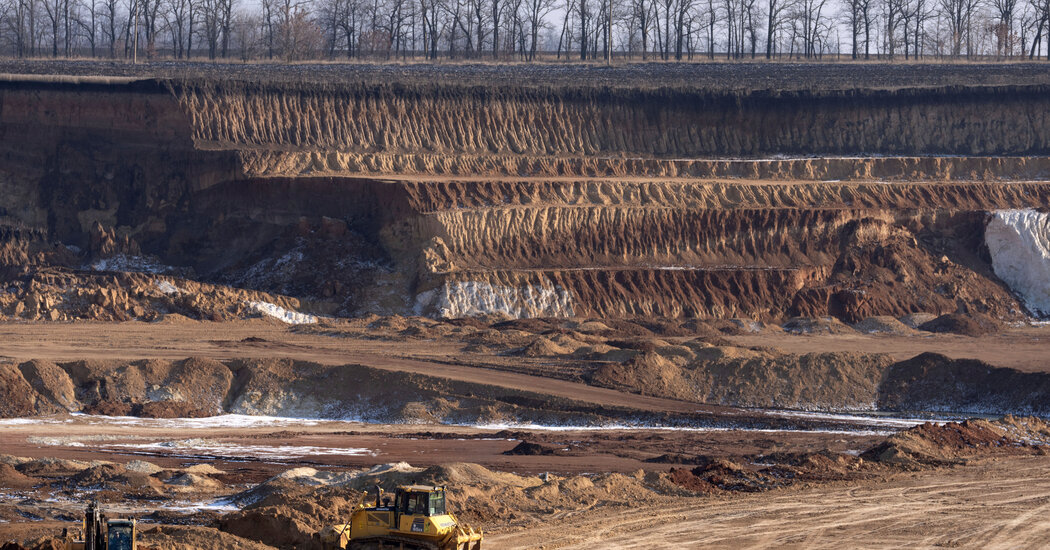As Ukraine on Saturday negotiated a deal to cede rights to its vast natural resources, the Trump administration was pushing terms almost identical to the ones Kyiv rejected a week ago as too onerous, according to a draft document of the new proposal.
The United States is holding firm on a demand that Ukraine relinquish half of its revenues from natural resources, including minerals, gas and oil, as well as earnings from ports and other infrastructure, according the document, which was reviewed by The New York Times.
Four current and former Ukrainian officials and a Ukrainian businessman who had the terms of the proposal described to them confirmed that the demands remained unchanged.
The document, which was dated Feb. 21, states that the revenues will be directed to a fund in which the United States holds 100 percent financial interest, and that Ukraine should contribute to the fund until it reaches $500 billion — the amount President Trump has demanded from the war-torn country in exchange for American aid. That is more than twice Ukraine’s gross domestic product before the war.
The document does not stipulate that the United States will provide security guarantees for Ukraine in return for access to Ukrainian resources. That key demand from President Volodymyr Zelensky was absent in the first draft agreement presented to him last week, prompting him to decline to sign the deal.
Ukraine was reviewing the proposed new deal on Saturday, and it was possible that it would sign the agreement before the end of the day, though the deal could also get delayed, given that Mr. Zelensky has previously voiced reluctance to accepting its terms.
The revised proposal appears to demand commitments from Ukraine without any pledges from the United States in return, said the four people, who spoke on the condition of anonymity to discuss private negotiations. It says, however, that the United States could then reinvest a portion of the revenue it would receive into Ukraine’s postwar reconstruction.
A previous version of the agreement, dated Feb. 14 and reviewed by The Times, included similar clauses.
A potential deal for Ukraine’s resources has been a major point of dispute in a rapidly deteriorating relationship between Mr. Zelensky and Mr. Trump. Their interactions became acrimonious in the last week as the American president assailed Mr. Zelensky in highly personal terms, calling him “an unelected dictator.”
The Ukrainian president, in turn, said that Mr. Trump was living in a “disinformation web” after Mr. Trump falsely claimed that Ukraine had started the war against Russia.
Two of the people who had the new proposal described to them said that one of the few changes made by the United States was the removal of a clause stating that the deal would fall under the jurisdiction of a New York court — a provision that raised concerns on the Ukrainian side, because it could weaken Ukraine’s legal standing in case of a dispute.
It is unclear whether Mr. Trump is requesting that sum in exchange for past American military and financial assistance, or whether it would also apply to future support. The United States has allocated $119 billion for aid to Ukraine, according to the Kiel Institute for the World Economy, a research organization in Germany.
The Trump administration has suggested that the mere presence of American economic interests in Ukraine would be a security guarantee for Kyiv. Top U.S. cabinet members have pressed Mr. Zelensky to sign the deal in recent days.
“President Zelensky is going to sign that deal, and you will see that in the very short term,” the U.S. national security adviser, Mike Waltz, said on Friday. “And that is good for Ukraine. What better could you have for Ukraine than to be in an economic partnership with the United States?”


